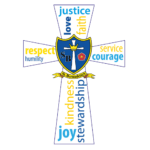
Early Years Foundation Stage
EYFS Intent
At St Bernadette’s we believe that all children deserve the very best start in life and we recognise
that this happens when they feel safe, loved and happy. We celebrate the uniqueness of every
individual and seek to provide them with stimulating learning opportunities whatever their prior
knowledge and experiences are.
Our Catholic faith is at the heart of everything we do and we aim to pass this on to our children. We
hope that they will grow to love God, and neighbour and be able to marvel at the wonders of
Creation. We aim to nurture in all our children a curiosity and deep respect for other cultures and
religions as we recognise that we are all children of God.
We believe that an emphasis on speaking and listening skills will promote self-confidence and
develop thinking, reading and writing skills as well as help children to form positive social
relationships and we strive to encourage children to develop these skills through their interaction
with other children and with adults.
At the end of their reception year, we aim for our children:
– To be happy in school, secure in the knowledge that they are cared for and valued
– To have faith in a loving God and enjoy participating in acts of worship
– To be kind to others
– To have care for and interest in their world
– To be able to take responsibility for their actions and to regulate their behaviour
– To have the confidence and resilience to persevere with any challenges and to feel able to ask for help if they need it
– To be articulate, motivated and thoughtful learners who are able to transition smoothly into Year One

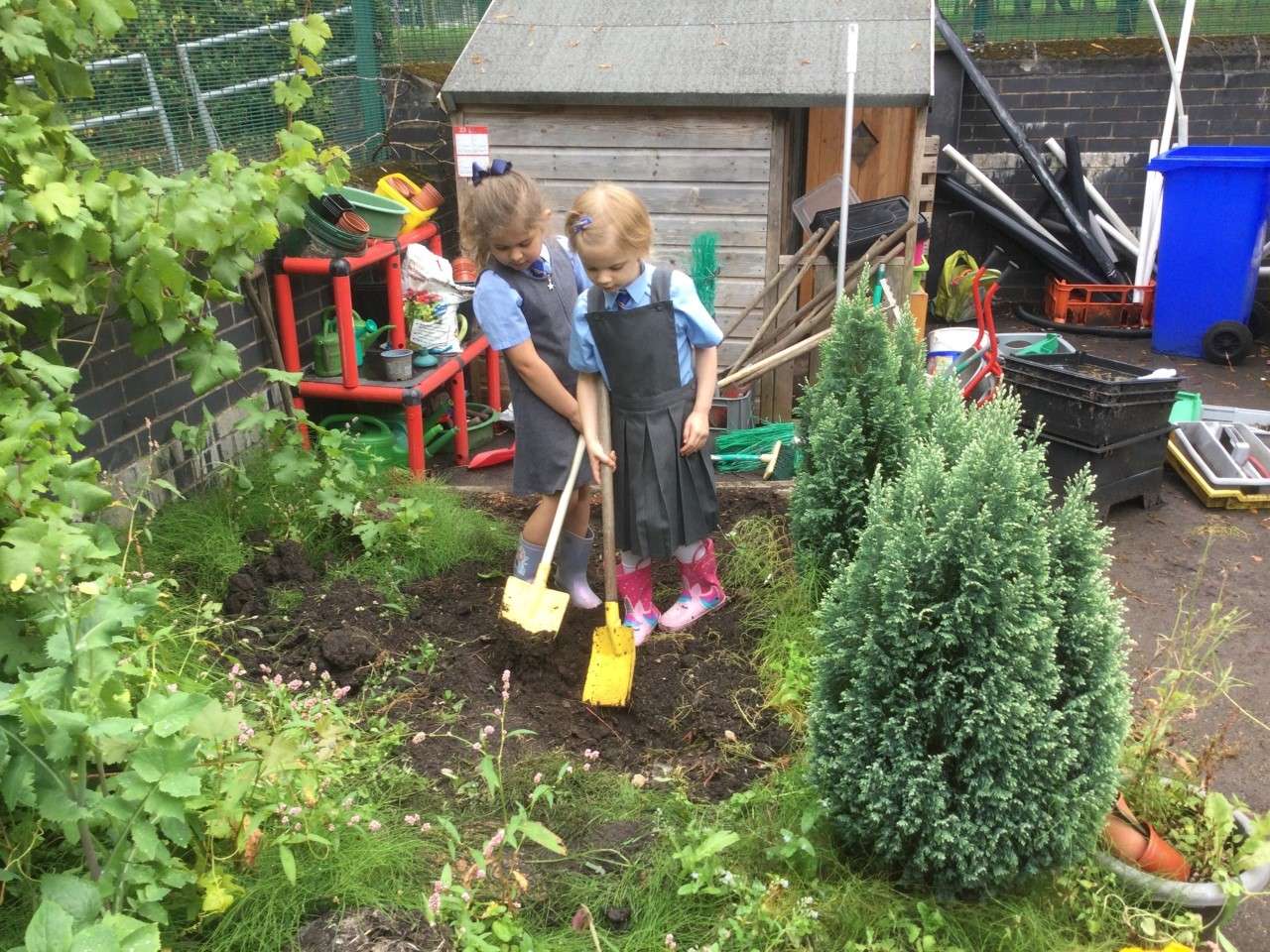
EYFS Implementation Statement
Our EYFS curriculum is planned in accordance with The Statutory Framework for the Early Years Foundation Stage, with reference to Development Matters and Birth to Five Matters. Safeguarding is a priority. Our curriculum and environment are carefully planned and organised to provide our children with quality learning experiences that are stimulating, exciting and safe.
Each half-term we begin with an ‘umbrella theme’ that allows staff to plan meaningful learning opportunities and which includes input from the children allowing us to follow their interests. We believe that children are more interested and motivated to learn if they have a ‘hook’ to capture their imagination and an investment in their learning.
Children learn through a combination of play, adult modelling, guided learning and direct teaching, which may be in groups, individual or whole class and time is given to allow for social, exploratory and schematic play. Over the year, the timetable changes to reflect the developing needs of the children as they grow and benefit from more guided learning.
Our outdoor learning environment begins right outside the classroom door where the children can engage in investigative, exploratory and physical play and take on problem solving challenges, choosing to work individually or collaboratively. Our outdoor learning area is integral to our early year’s provision, all aspects of outdoor teaching and learning have the highest priority – learning opportunities are everywhere! In addition, we make good use of the front garden where our children take part in ‘Forest School activities’ one afternoon a week.
Throughout their reception year, the children will be observed by our experienced staff and assessed
in relation to their progress towards the Early Learning Goals. These assessments are regular and ongoing. They always feed into short term planning which enables us to provide the correct learning opportunities, interventions and support where it is needed and offer extension in areas if it is appropriate.
At St Bernadette’s we believe in working in partnership with parents to ensure the best outcome for the children. We have introduced ‘Super Sharing’ afternoons each half term where our families can visit Apple class and talk to their child about all the learning they have been doing. Every parent or carer is encouraged to add their own comments to their learning records. We offer regular parent teacher meetings, virtually and in-person, in addition to the informal chats at the start and end of the day. We aim to keep parents fully informed about their child’s progress and we strive to foster a strong and respectful relationship between school and home so that we can offer extra help and support to those who need it
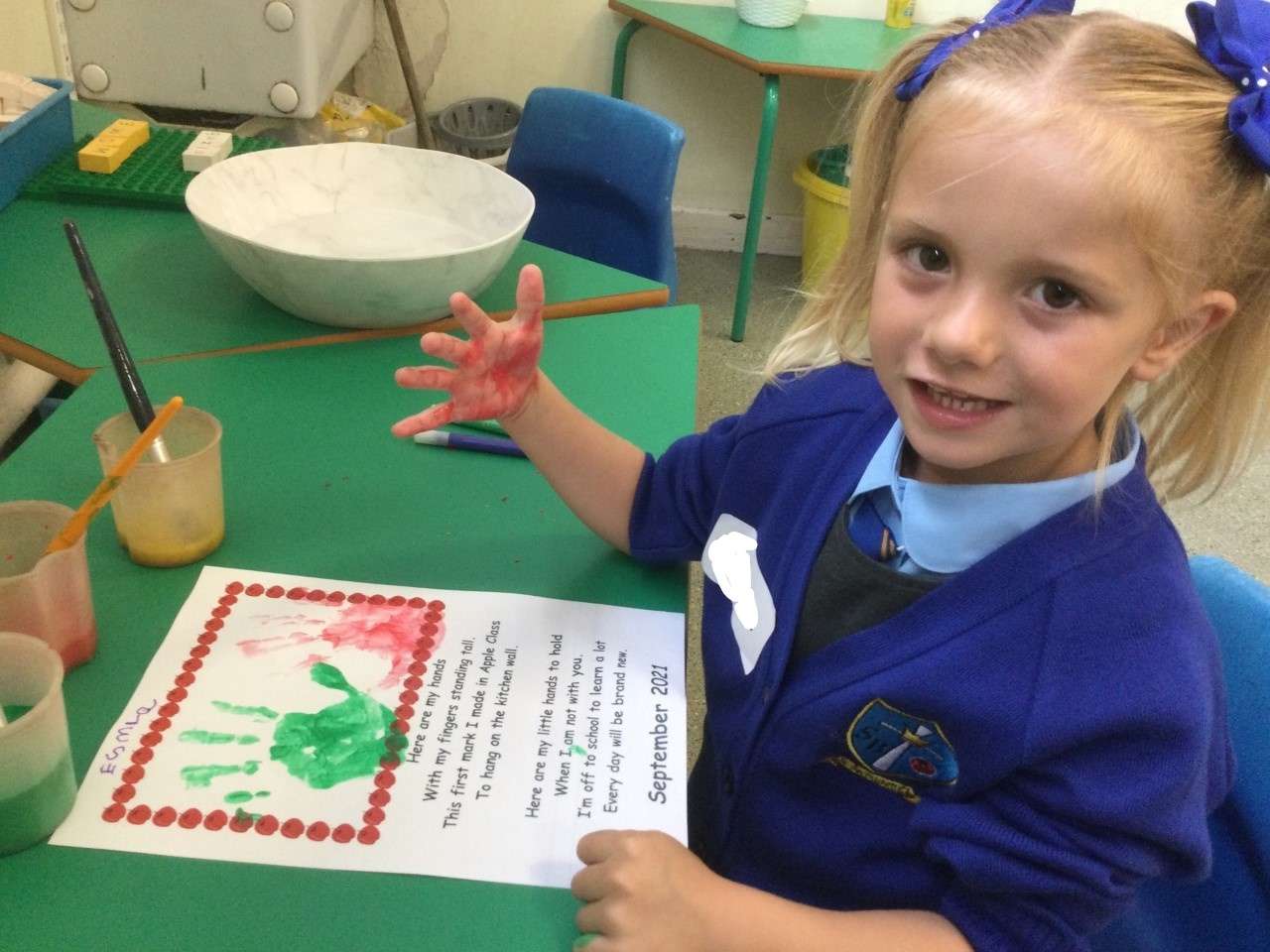
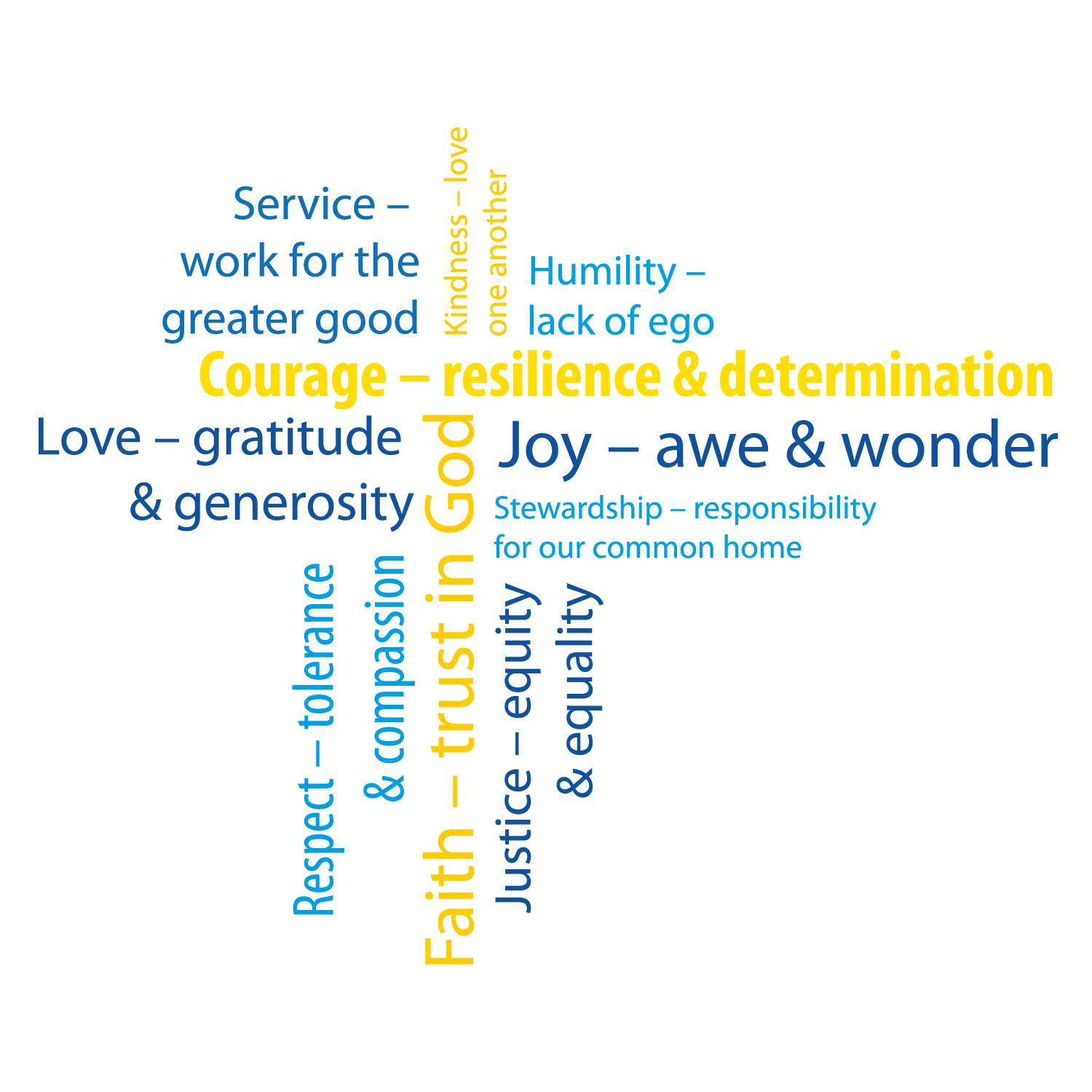
RE
We use the Lancaster Diocese Curriculum wheel and the Age Related Standards in Curriculum RE to plan RE in the EYFS. RE is planned in a holistic way that permeates through the entire curriculum although it is assessed as a discrete subject. Oral storytelling and drama play a large part in our teaching of RE and through gardening activities and Forest Schools , we aim to guide our children to a sense of awe and wonder about their world and gratitude for all that they have that leads to a desire to work for the common good.
Literacy
Reading is fundamental to all education and we plan reading opportunities into all areas of our provision. We provide a print-rich environment where books are shared, enjoyed and discussed daily and children are encouraged to develop a love for reading as they share picture books, listen to stories and begin to read simple words and sentences for themselves. Children are given books that match their phonic knowledge so they can practise and apply what they are learning in school. Daily phonics sessions support the children in their learning of letters and their sounds and how they go together. We teach cursive letter formation from the very start, recognising that children also need a range of physical movement activities to develop large and small muscle co-ordination, which we incorporate into our provision. We plan writing opportunities throughout our provision; children use clipboards, notepads, large paper on the floor, chalk, paint and sand as well as the ordinary paper, pens and pencils to write single letters, names, labels and lists, and later, plans, observations, diaries, letters and postcards, books and descriptions.
Mathematics
Early mathematical learning and understanding is embedded throughout our EYFS curriculum and is an ever present feature of daily life in Apple class. Whether it be using the language of shape in junk modelling and explaining why certain shaped junk make for the best rocket top or finding the correct objects and sets of objects at tidy up time and even making sure to take the right amount of snacks
at break time! Maths is everywhere! We also follow the White Rose Maths scheme of work and children learn through a short daily session on the carpet, which is supplemented by group tasks, games, adult modelling and support in the provision where resources are provided for children to explore, practise and embed their mathematical knowledge and skills.
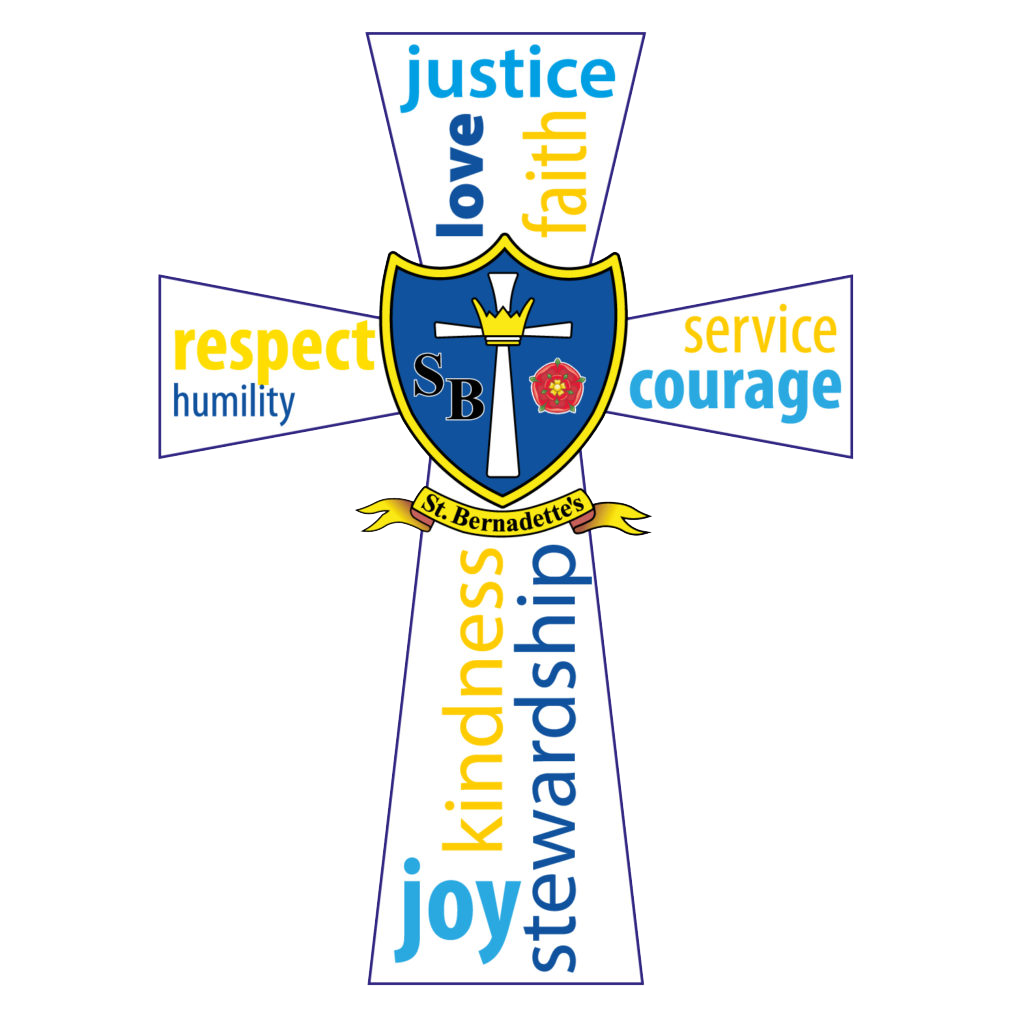
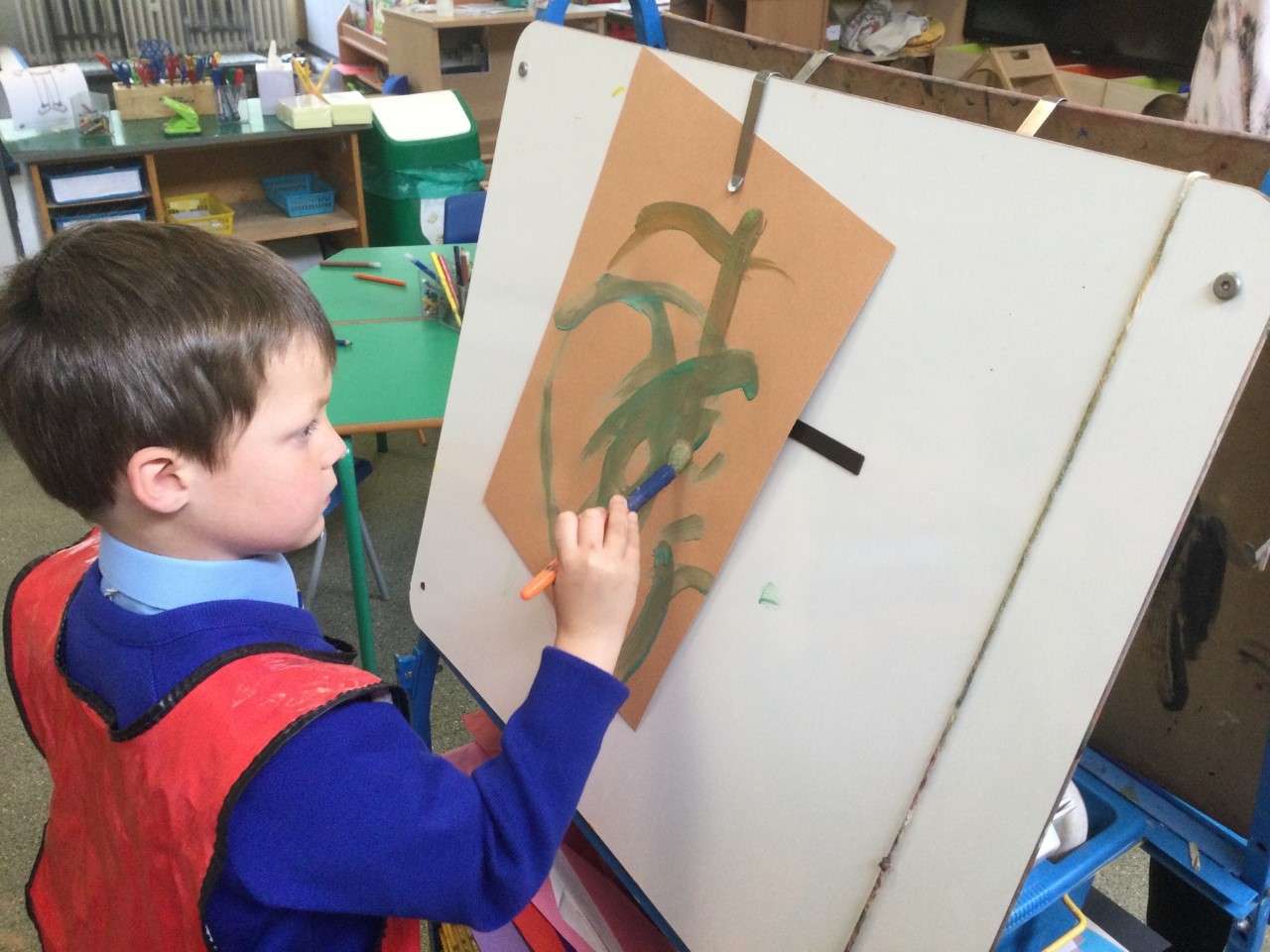
Observation and Assessment
Baseline
Even before children start school, staff speak to parents and previous settings as well as spending time with the children on induction afternoons in the final half-term. Once the Autumn term begins, so do ongoing assessments and observations and conversations that enable us to build an accurate ‘picture’ of where each child is on their learning journey. All this comprises our Baseline Assessment which we will use to inform our planning for the first term. In addition, we also complete the Reception Baseline Assessment (RBA), which assesses Language, Communication and Literacy and Mathematics and which will be used to measure the progress made by each child from Reception to the end of Year Six.
Continuous Assessment
Throughout the year, staff are continually assessing the children and this informs our weekly planning, and identifies next steps for the children including any intervention that may be necessary. This should not involve excessive paperwork or time away from the children and may take the form of observation notes on post-its, photographs, children’s work in floor books and ‘wow’ moments. Conversations with parents may also be part of this process. Each half –term assessments are recorded on the Lancashire Tracker.
Phonics
Phonics assessments are carried out every half-term to ensure that children are in the correct groups and that their reading books are appropriate for their level of phonic skill. These are tracked to ensure that all pupils can make the best progress possible.
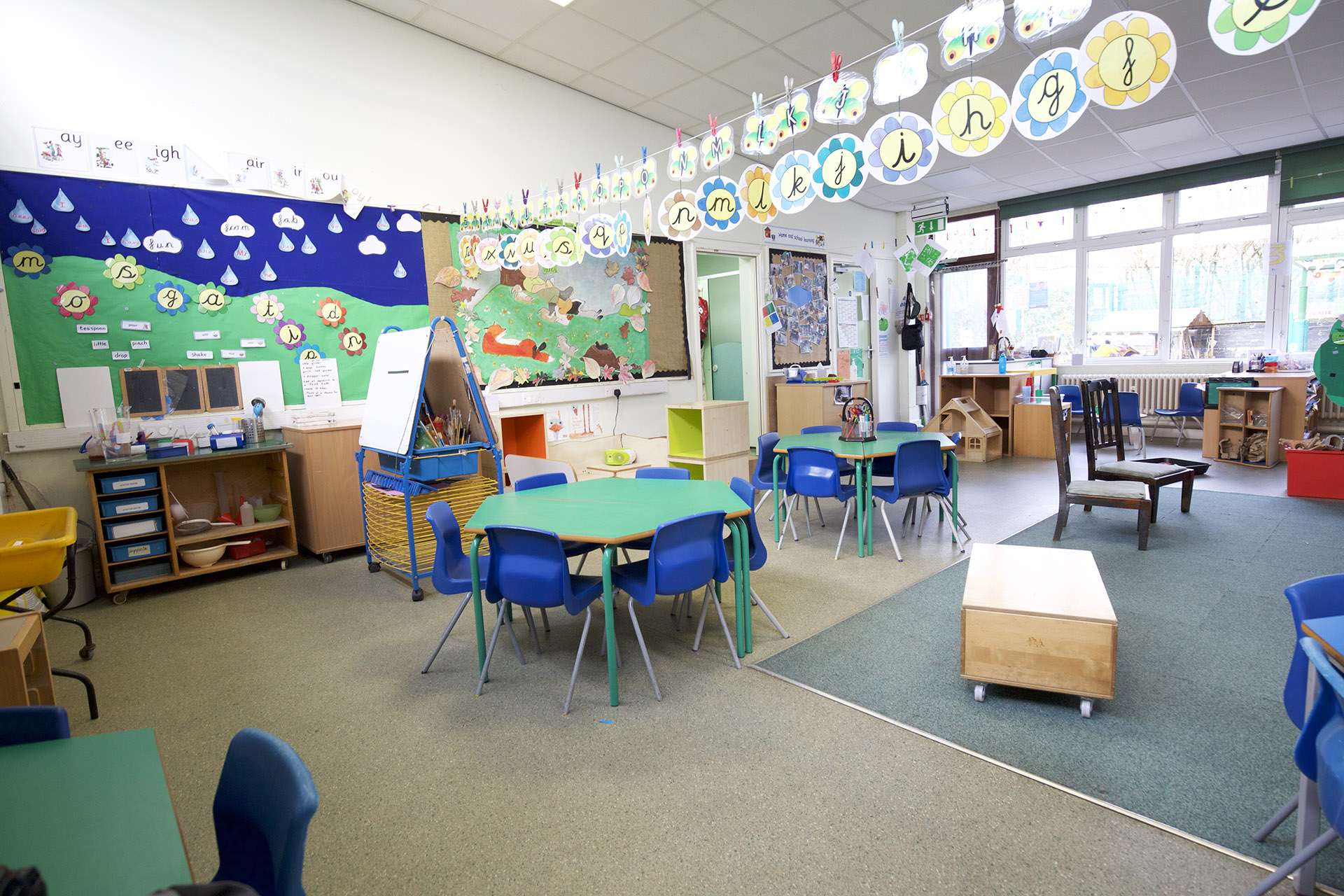
End of Year
At the end of the summer term, the reception teacher completes the Early Years Foundation Stage Profile (EYFSP) for each child which records whether they have met the expected standard for all seventeen Early Learning Goals. This will be reported to parents and to the Year One teacher as well as to the LA.
Most importantly, by the end of their reception year, our aim is for our children to be ready and prepared for moving into Year One; equipped with
– Confidence in their abilities and in their teachers
– Enthusiasm for school and for learning
– A firm foundation on which to continue to build their knowledge and skills
Impact
We regularly amend and update, change and respond to the needs of our children. We know this is successful because our children enjoy coming to school, they love learning and children in our EYFS
provision regularly achieve a good level of development and this achievement is consistently higher than both the local and national averages. Most of all our children are more than ready for the next phase of their learning and make the transition to Year 1 with ease.
